June 24, 2025 | 19:45 GMT +7
June 24, 2025 | 19:45 GMT +7
Hotline: 0913.378.918
June 24, 2025 | 19:45 GMT +7
Hotline: 0913.378.918
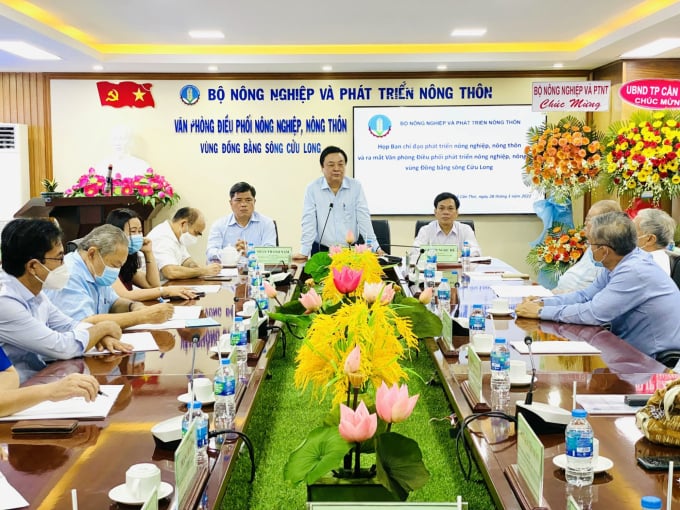
The Ministry of Agriculture and Rural Development officially launched the Mekong Delta Agricultural And Rural Coordination Office in the period of 2021 - 2025 on March 28. Photo: Le Hoang Vu.
An offfice to promote the agricultural and rural coordination in Mekong Delta in the 2021-2025 period has been established in Can Tho Province by the Ministry of Agriculture and Rural Development (MARD).
The launching ceremony of the Mekong Delta Agricultural And Rural Coordination Office was attended by Minister of Agriculture and Rural Development Le Minh Hoan, Deputy Minister Tran Thanh Nam, Vice Chairman of Can Tho City People's Committee, Nguyen Ngoc He, together with scientists and leaders of the Department of Agriculture and Rural Development of 13 provinces and cities in the Mekong Delta region.
The Steering Committee for Agriculture and Rural Development in the Mekong Delta region is headed by Deputy Minister Tran Thanh Nam. The Deputy Head of the Committee is Nguyen Van Viet, Director of the Planning Department under the MARD and its members include representatives of many units under the MARD and the directors of the 13 Departments of Agriculture and Rural Development in the Mekong Delta region.
The Mekong Delta Agricultural and Rural Coordination Office, located in Can Tho City, aims to support The Steering Committee for Agriculture and Rural Development in the Mekong Delta region to implement its duties.
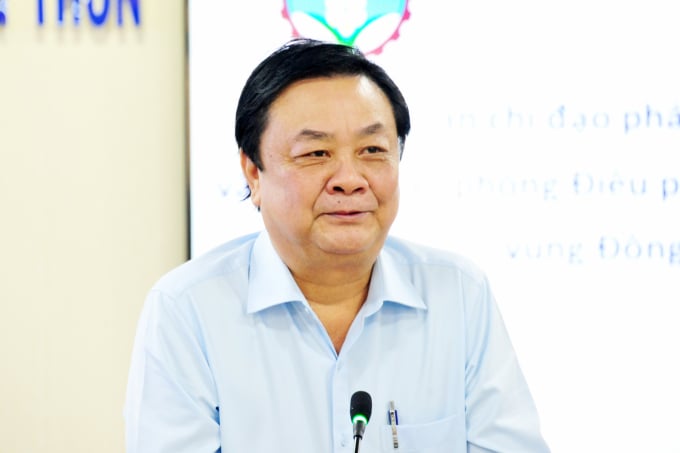
Minister of Agriculture and Rural Development Le Minh Hoan attends the launching ceremony of the Mekong Delta Agricultural And Rural Coordination Office. Photo: Le Hoang Vu
Speaking at the ceremony, Minister Hoan said that investors might not know where localities like Dong Thap, An Giang, Tien Giang or Ca Mau are located but all of them know where the Mekong Delta is, as it is one of the largest deltas in the world.
The leader of Vietnam's agriculture industry called on 13 localities in the Mekong Delta to have their products connected with each other.
“For example, when investors invest in rice production, they will use raw materials from the whole region instead of any particular province,” he explained.
“The promotion of the brand names for the products in each province therefore should be minimized a little bit to promote the general brand name of the Mekong Delta,” the minister said.
According to him, the Mekong Delta's agriculture sector, including the management from central to local levels, from internal connections of the State to community and scientists’ initiatives, is still small, fragmented and spontaneous.
Therefore, he stressed that connecting within the delta does not mean connecting 13 localities but individuals, businesses and scientists who are passionate about the development of the delta.
The minister said that The Steering Committee for Agriculture and Rural Development in the Mekong Delta region would hold monthly and then weekly activities and events, which will create a platform for scientists and businesses to gather and exchange ideas.
He emphasized that the key task of the Steering Committee is to study and propose to the Minister mechanisms and policies in the branches and fields under the management of the MARD to meet the requirements and solutions to improve the efficiency of regional development.
Other tasks of the unit include connecting businesses investing in high-tech agriculture and deep processing; connecting commodity chains; improving the quality of cooperatives; forming a link between production and consumption; coordinating the operation of irrigation works to ensure the synchronization of the whole system and supporting the digital transformation of agriculture at the regional level.
The Steering Committee will also support the coordination of inter-provincial and inter-regional international funded projects, while harmoniously combining construction investment and non-structural solutions, which is expected to reinforce the linkages within the Mekong Delta region, opening up a modern agricultural and rural economic space.
The linkages considered by the Steering Committee as the main goals include water resources, infrastructure, products along the value chain from production to processing and consumption, science and technology, markets, resources and worker training. Such goals aim to create agricultural products for the Mekong Delta region with high economic value and competitiveness in most international markets.
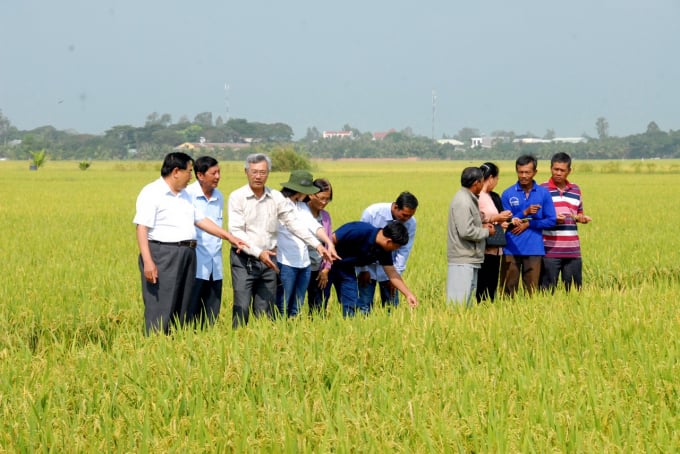
The Mekong Delta Agricultural And Rural Coordination Office aims to attract businesses to invest in high-tech agriculture and deep processing. Photo: Le Hoang Vu.
According to Nguyen Ngoc He, Vice Chairman of Can Tho City People's Committee, The Mekong Delta Agricultural and Rural Coordination Office is based in Can Tho, the center of the Mekong Delta region, with many expectations to elevate the development of the land to a higher level.
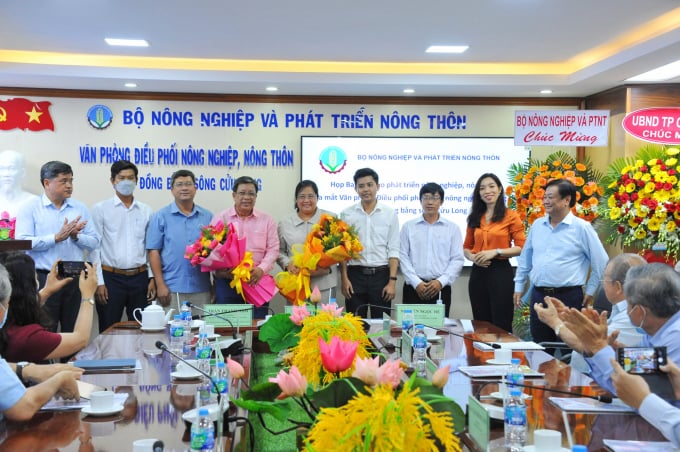
Le Thanh Tung (fourth from left), Deputy Director of the Department of Crop Production is the Chief of the Mekong Delta Agricultural And Rural Coordination Office. Photo: Le Hoang Vu.
“Though the region is a key area for large-scale rice and seafood industries, the agricultural production is still fragmented due to its small scale.
“The office therefore is expected to create regional linkages and orientations for each locality in terms of production organization” he said.
The next expectation in the Steering Committee for Agriculture and Rural Development in the Mekong Delta is to have orientation and guidance for each province to create strength in agricultural production linkages in the Mekong Delta. At the same time, it would create strong attraction to large enterprises to create a large export-oriented agricultural product supply chain.
He also hoped that the Steering Committee would advise the Prime Minister to synchronously invest in technical infrastructure for the Mekong Delta in agricultural production to adapt to climate change in accordance with Resolution 120 of the Prime Minister.
Translated by Phuong Ha
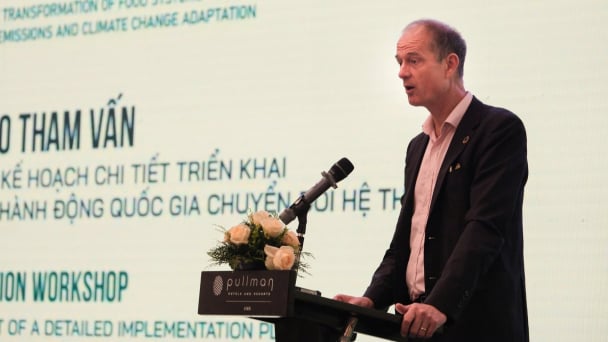
(VAN) UNDP in Vietnam organized a consultative workshop to discuss ways to integrate detailed implementation plans into the national food systems transformation strategy.
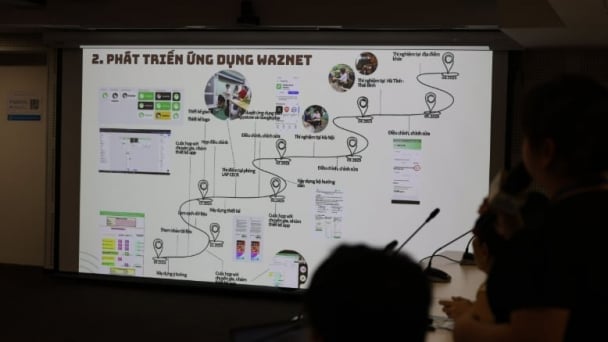
(VAN) Waznet helps digitize waste collection data, recognizing the environmental contributions of informal collectors in reducing greenhouse gas emissions.
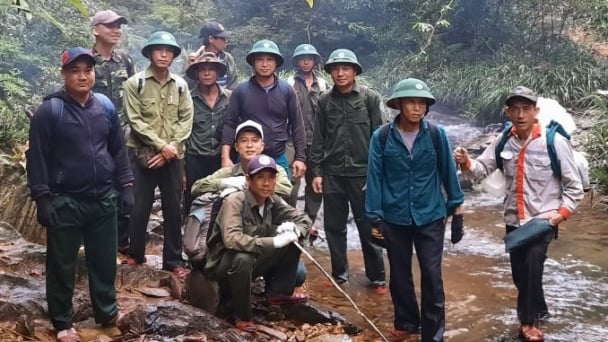
(VAN) All parties have acknowledged the barriers in mobilizing finance for conservation, proposing detailed initiatives. One of the most effective methods is to employ natural-based solutions.

(VAN) Vietnam is the country with the highest diversity of primate species in Southeast Asia, but most of them are seriously threatened, creating an urgent need for conservation efforts.
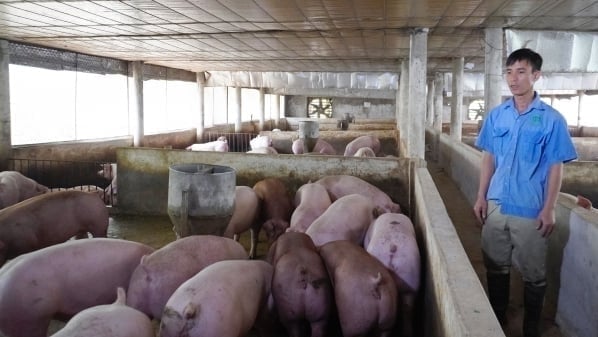
(VAN) Livestock farmers are still hesitant to use the new ASF vaccine products, mostly waiting for responses from large businesses before making a decision.
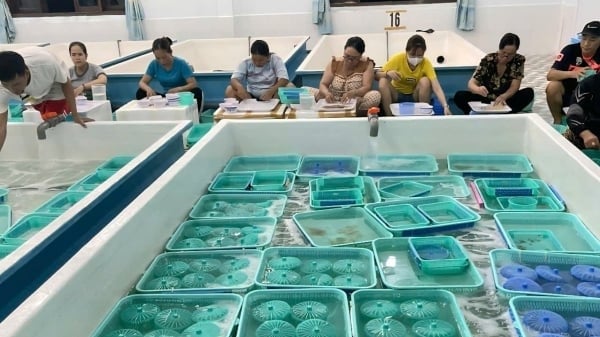
(VAN) Khanh Hoa and Phu Yen continue to strengthen inspection and control of lobster seed circulation in the area, and strictly handle violations.
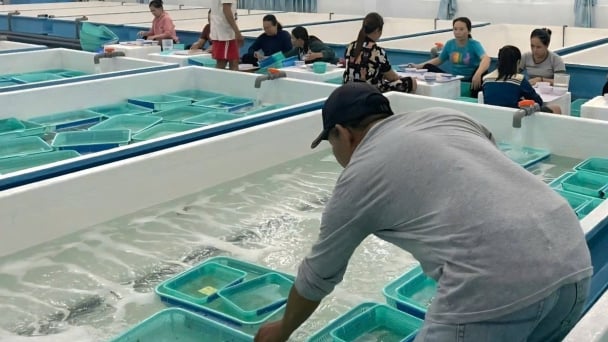
(VAN) Phu Yen and Khanh Hoa recently discovered many batches of lobster seeds of unknown origin. The authorities quickly moved and handled it as per regulations.